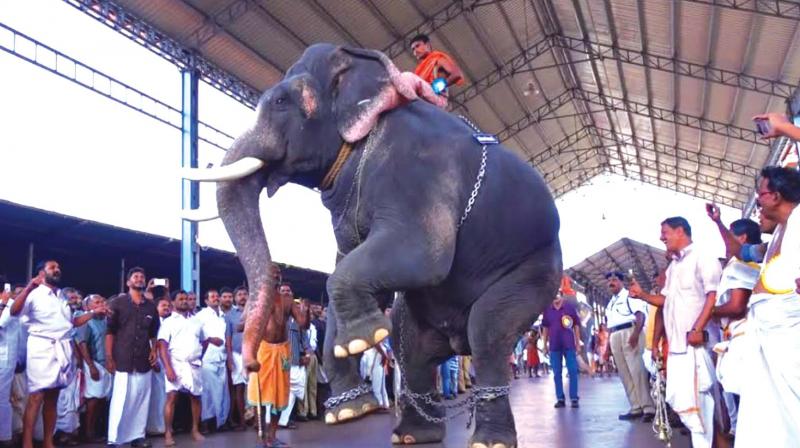Kerala: Mahouts' welfare remains on paper

ALAPPUZHA: Authorities remain least concerned about the life of some 2,000 mahouts of the state. On Sunday, a tusker critically injured one during Sheeveli Ezhunnallathu at Guruvayoor, drawing attention to the flawed system providing no training in stress management. Elephant Task Force (ETF), a Thrissur-based NGO, had in 2010 written to the Union environment ministry with suggestions to improve their service conditions. Maniyan Pillai, 52, who got injured in the jumbo fury a couple of years ago, got no compensation either from the government or the elephant's owner.
He is unable to walk as his knee is broken and it needs urgent surgery, but he has no money. "His case is not isolated. Many injured mahouts live in hardships," says Manoj, the secretary of Akhila Kerala Ana Thozhilali Union (AKATU). "We approached the government many times, but to no avail." M. N. Jayachandran, member, Kerala Animal Welfare Board, feels the main villain is their stress. "The only remedy is a change in their lifestyle," he says. "The government should form a panel to study their plight." The ATF had suggested training schools and registration as trained and licensed elephant handlers but in vain.
"Absence of an established network is the single most important reason for the neglect," he says. "Private mahouts need to be paid at par with those in government service. They should get hardship allowance, accident insurance and bonus for well-kept elephants. All mahouts and the newly-recruited should undergo training from the forest department to obtain a license." During the festival season, while taking elephants for rituals or parades, each mahout is paid a bata of Rs 1000 a day. But at other times they hardly get paid. Their average monthly wage is below Rs 5,000.

